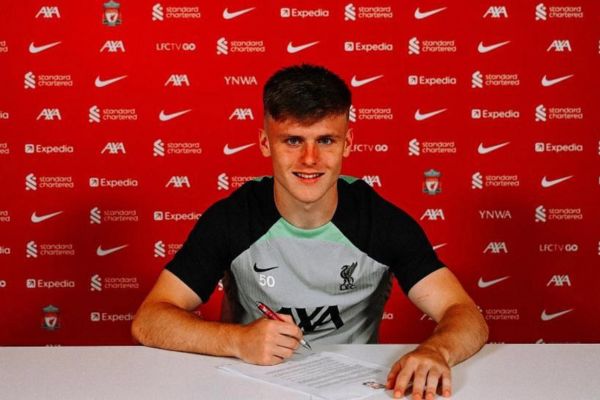Andres Escobar and the tragedy story behind his own goal in the 1994 World Cup
1 year agoAndres Escobar was summoned by fate when he suffered a severe penalty for an own goal in the 1994 World Cup final as the former captain of the Colombian team. We still don't fully understand the many dark edges of this sad tragedy, though. Join us as we learn about the tragic life of Andres Escobar as well as the real story behind his illustrious career.
Join ulsfootball to watch live football streaming tonight and read stories about football legends.
Who is Andres Escobar?
“The gentleman of football” Andres Escobar was born on March 13, 1967 in Medellin (Colombia) into a middle-class family. Andres Escobar Saldarriaga (Andres Escobar's full name) showed a passion for the ball when he was a child. His father, Darío Escobar encouraged his son to pursue his favorite sport instead of forcing him to follow the heirloom profession of banking like him.
Possessing the natural qualities required of a player in terms of strength, endurance, tactical vision, Escobar quickly made a strong impression when he trained at Atletico Nacional's youth team from 1985 to 1986. Escobar's remarkable progress on the pitch was well-deserved by being promoted to the first team of Atletico Nacional from 1986 to 1989.
With his smart play, ability to judge situations very well, especially always keeping a moderate and peaceful attitude, this player has been nicknamed "El Caballero del Fútbol" (The Gentleman of Football) by many fans of the traditional Colombian football team.
Escobar's success with Atletico Nacional has been demonstrated with the achievement of a series of noble titles such as winning the Copa Interamericana 1989, winning the 1989 Copa Libertadores, the Intercontinental Cup runners-up 1989. This is also the reason why Young Boys Club had to “roll out the red carpet” to invite him to play in the Swedish championship. However, he only attended this club for 1 year (1989-1990) and returned to play for his old team Atletico Nacional in his hometown of Colombia (1990-1994).
Along with his achievements at the club level, Escobar also made his mark through his performance in the Colombian national team shirt. During the next 51 appearances for Colombia, Escobar became increasingly sublimated, becoming a reliable stop at the heart of the defense.
Not only that, but Escobar is also loved by many fans for his exemplary work on and off the pitch. It is the reason why Escobar quickly became a youth idol in the South American country in the 1990s in the last century.
There was a time when Colombians believed that this brilliant player would go on to create the country's history in the king sport, but all seems to have ended completely due to a mistake that lost him his life.
It wasn't a missed pass or a botched shot on goal. It was a simple own goal that ultimately cost his team a spot in the World Cup. Little did he know that this one error would lead to tragic consequences that would reverberate throughout the entire country.
The own goal that took Andres' life
Colombia under the shadow of the tycoon Escobar
Colombia at that time also became a phenomenon with explosive and effective play. This is the only team that has not lost a match after all 6 matches in Group A in the 1994 World Cup qualifiers in South America: 4 wins, 2 draws. Thanks to that result, Colombia topped Group A after closing the series in the 1994 World Cup qualifiers in South America.
It was also the Colombian team that delighted millions of fans with a jubilant "5-star" (5-0) victory over Argentina, the "big man" of South American football and the world. In the match between the two teams took place at the Monumental Antonio Vespucio Liberti stadium with a capacity of 53,000 seats in Buenos Aires (Argentina) on September 5, 1993, Colombia made its own history.
With such a talented team and captain Andres Escobar at the age of 27, who is in the maturity of his playing career, the best Colombian team in history is expected by many to make a big deal when the biggest soccer game on the planet took place in the United States in the summer of 1994.
However, everything changed under the tycoon Escobar.
Before talking about Andres Escobar, we need to know the story of his cousin with the ill-fated Colombia defender. It was Pablo Escobar, the most famous drug lord in the South American coun
try and possibly the world.
The Economist believed that at its peak, a drug cartel led by Pablo Escobar supplied 96% of cocaine into the United States. Pablo Escobar's average daily revenue is $70 million, mostly cash. To this day, there is still a legend that Escobar spends $1,000 a month to buy rubber bands. Each year, 10% of this money will turn into paper waste because of a rat bite or rotting. In the early 1990s, Escobar's fortune was estimated at $30 billion.
Escobar's power also influenced the Colombian government. In 1982, this notorious tycoon was also an alternate member of the Chamber of Representatives of Columbia
Leading drug cartels and creating confrontations with the government, but Pablo Escobar is especially passionate about football. Like a child pointing to a lollipop behind a glass, Escobar has had ultimate power over Colombian football thanks to his investments in clubs.
Many sources confirmed that football is also a place for him to carry out money laundering activities.
Escobar's approach sparked the trend of Colombian drug lords investing in football at that time. In 1989, Atletico Nacional, the club in which Escobar directly invested money, won the Copa Libertadores championship. It was also the time when Colombia's stars resonated all over the world such as Carlos Valderrama,
Faustino Asprilla, Rene Higuita or Andres Escobar himself. Higuita even went to transfer hostages to the gang led by Escobar to receive $ 64,000 in remuneration. The goalkeeper was later arrested and jailed for 7 months.
In December 1993, Escobar was shot and killed during a 15-month chase that cost the Colombian government millions of dollars. There was a thought that the death of the tycoon would make the situation in this country improve, but this made everything even more difficult to control.
The partisans who were no longer under Escobar’s control had continuously caused chaos to seize the position left by the drug lord. People must always live in a state of insecurity when bloody brawls between gangs can take place at any time, regardless of the presence of the police.
It was this bad situation that destroyed the performance of most Columbia players before the 1994 World Cup took place. The pressure on Colombian players in the American summer made them no longer interested in football.
“We are not talking about winning the championship or going to the final. Actually, Colombia made it through the group stage very well. At home, the fans believe too much in miracles," defender Oscar Ortes admitted.
You may also be interested: Rene Higuita and His Unforgettable Scorpion Kick
The tragedy of Andres' own goal in 1994
At the 1994 World Cup, Colombia was in Group A with the hosts USA, Romania and Switzerland. In terms of force correlation, the South American team can completely win all 9 points to continue with the first place.
But the problems off the pitch knocked "Los Cafeteros". A string of terrible achievements before the World Cup made Colombia a reliable choice for not only gamblers but also big-blooded players.
Colombia lost 1-3 to Romania in the opening match. After the game, threats from home flew into the Colombian dressing room. Betting magnates were mad at failure. One of them also threatened head coach Francisco Maturana. If midfielder Gabriel Gomez was not allowed to play in the match against the US, the whole team would be killed.
The tragedy of "Soccer Gentleman" - Andres Escobar took place in the match against the US. On June 22, 1994, in the 35th minute of the match, Escabor dove to intercept a cross that US midfielder John Harkes sent across goal. He wasn't doing it on purpose, of course; after all, he was only human. But his timing was off. He ultimately managed to deflect the ball into his own goal, giving the Americans a goal. Losing the match 1-2, Colombia was officially eliminated from the 1994 World Cup from the group stage.
In Colombia, the tycoons went crazy after this result. Andres Escobar, the criminal who betrayed the home, became a "scapegoat" in the anger of the outlaws in Colombia. At 3 a.m. on July 2, 1994, 10 days after the disaster against the United States, Escobar was shot and killed outside the El Indio nightclub on the outskirts of Medellin, Colombia.
The perpetrator fired 12 bullets at Escobar while shouting "Goooool" (parodying the voices of South American commentators every time a goal is scored). This horrifying scene was later recounted in tears by Escobar's fiancée, Pamela Carscado: "I was dumbfounded. I was living with the love of my life, getting married, having a daughter. Then I woke up, and everything was gone. For me, my life officially stopped from that day on."
After killing Escobar, the perpetrator escaped in a car. The police collected witness statements and confirmed that the car was owned by brothers Juan and Pedro Gallon, former henchmen of tycoon Pablo Escobar. The Gallon brothers are said to have lost hundreds of thousands of dollars because of Andres Escobar's own goal.
However, the two Gallon brothers were not prosecuted before the law. The only person arrested and convicted is Humberto Castro Munoz - the bodyguards of these two. Munoz was sentenced to 43 years in prison before being released in 2005, just 11 years after his sentencing for "good re-education". The Guardian newspaper confirmed that the two Gallon brothers spent $3 million to bribe the judge.
Escobar's death shocked the world. His funeral in Medellin was attended by 120,000 people to offer condolences. His coffin was covered with the Colombian flag. National team coach Francisco Mutarana spoke out about his student's death: "Escobar was not killed because of football. He was killed by the problems in our society."
Many people believe that if boss Pablo Escobar was not killed, Andres Escobar would still be alive today. However, that prospect will forever be behind the word “if”, and Escobar's death will forever become the most forgettable memory in the history of the World Cup finals.
Andres Escobar's death spurred the Colombian government to take a harder line in the crackdown on criminal gangs. The Rodriguez brothers were sentenced to 30 years in prison in the US. Colombian Football Federation president Juan Bellini was sentenced to six years in prison for money laundering.
More than 20 years after Escobar's death, his image still appears in the stadium during Colombia's matches. Escobar's famous saying "Life does not stop here" was even translated into lyrics by Atletico Nacional fans.
In conclusion
The tragic death of Andres Escobar sent shockwaves through the football world, reminding us of the dangers that can arise when sport, politics, and violence intersect. But beyond the headlines and the sensationalized accounts of his death, Andres Escobar was a talented footballer and a beloved figure in his native Colombia. His legacy lives on in the memories of those who knew and loved him, and in the countless fans who continue to be inspired by his passion and dedication to the sport.
Other news
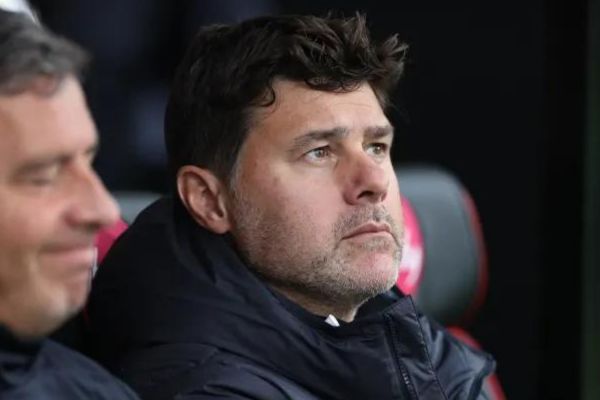
Chelsea's Injury Crisis: A Look at the Missing Players Under Mauricio Pochettino
1 year ago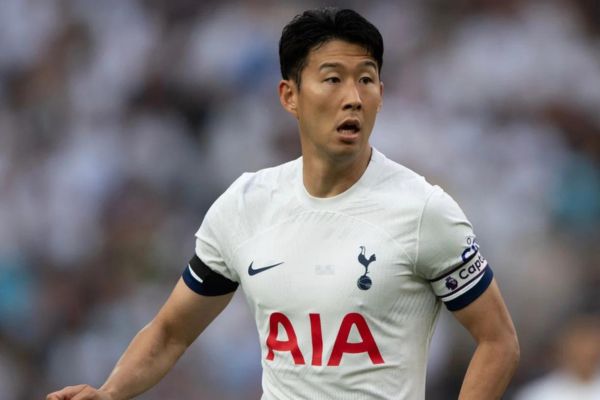
Tottenham's Plan for Son Heung-min: A New Contract on the Horizon
1 year ago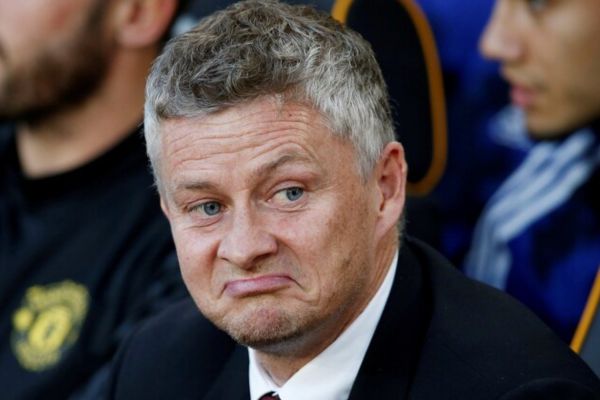
Ole Gunnar Solskjaer Addresses The "Disease of Modern Football"
1 year ago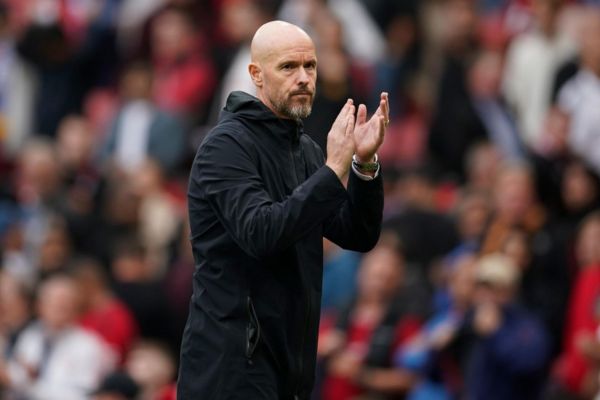
Premier League Crisis Club of the Week 2023/24: Manchester United
1 year ago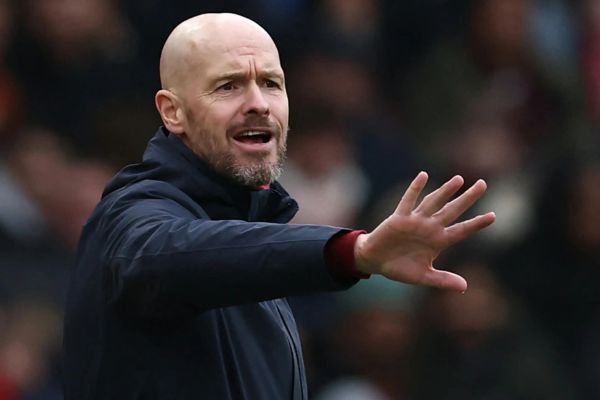
Erik ten Hag's Injury Woes Continue as Man Utd Announce Squad for Bayern Clash
1 year ago